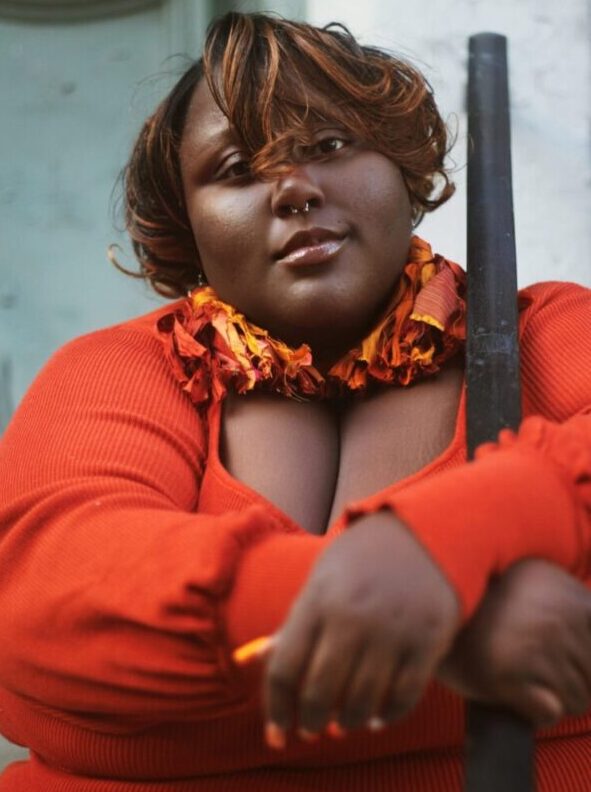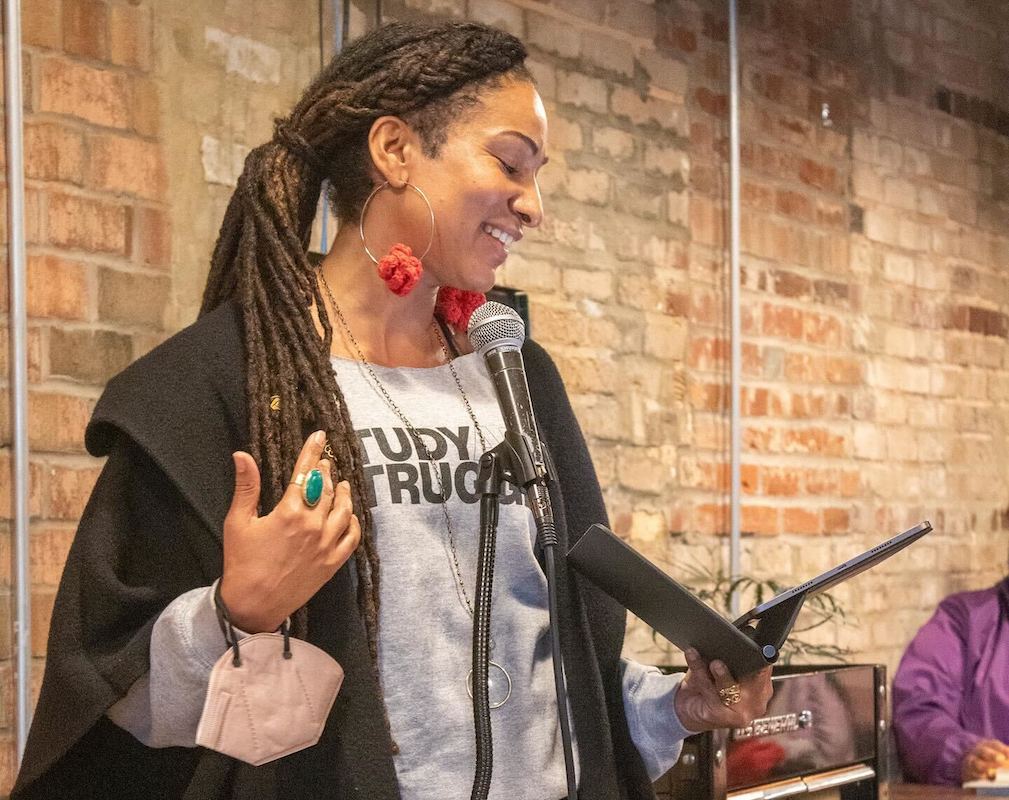After the first article from my Waverly Book Festival conversation with Ruha Benjamin was published, I received a thoughtful Instagram comment from my friend Micknai Arefaine.
“Yes, get it [heart emoji] get it [brown-skinned hand clap emoji] Ruha?!” she said enthusiastically.
Like Benjamin and I, Arefaine is passionate about anthropology and studying the origins and development of societies and cultures. The two share curiosity for positive change in the world. In our conversation following her short lecture on that rainy afternoon on Greenmount, Benjamin emphasized the need to recognize and combat subtle forms of oppression, such as microaggressions and “weathering,” through deliberate efforts to engage in positive interactions, or “micro-affections.”
We also explored topics surrounding the cultural baggage and shame that mothers, particularly young and Black mothers, may experience, as well as the importance of creating contexts in the community where vulnerability is respected and care work is valued. We ended the conversation by advocating for the development of social skills and ways of relating to one another differently as a crucial aspect of creating a more just and equitable world. Here’s that conversation, lightly edited for length clarity:
Alanah Nichole Davis: Your examples of viral culture were really interesting, and made me think about how often we make assumptions about things before we really know what they’re about. Like your book, for instance: Folks (myself included) could easily think is about TikTok or tech like your last book [we chuckled]. But I had the opportunity to learn more about it and now I see it differently. And I think that’s really important, especially when it comes to the arts and humanities because they continue to be catalysts for change in the world. How do you feel about arts and culture and the role they play in shaping the world we want to see?
Ruha Benjamin: I believe that everyone is a creator, whether we recognize it or not. And so, when we talk about the importance of the arts, it’s not just about the visual or the performative, but about creating in general. Imagination is a terrain of struggle, and we live within someone else’s imagination of what work, health, education and family should be. We need to take imagination seriously as a starting point for change and think about the counter-imaginaries that we want to materialize in the world around us.
Arts and culture are not optional or just a feel-good factor, but rather the groundwork for change. We need to invite people from all backgrounds and levels of creativity to participate in this process. The art world is hierarchical, just like academia or an Amazon warehouse, so we need to be aware of power and hierarchy and work to wrestle with those hierarchies within the terrain of the arts.
We need to imagine an expansive imagination that allows for multiple coexisting visions of what the world could be like, instead of what it is now. We need to reimagine health, education and workplaces to produce results that reflect their true function. The classroom is one of my plots, and I believe that we need to create an expansive sense of the classroom — not just the four walls of a university, but a place where students are given permission to speculate and imagine how things could be different and work together to make it a reality.
AND: I love the use of the word “imaginative” especially when talking about oppressors because it reminds us that they are not void of imagination. In fact, they are some of the most imaginative people who have ever existed on Earth (in my opinion), creating realms and systems that hold us down. Even in our everyday lives, we experience microaggressions that wear us down over time. Can you speak to this idea of “weathering” and how we can recognize and combat these subtle forms of oppression?
RH: Yes, “weathering” is a term coined by public health practitioner Arline Geronimus, which refers to the small cuts and stressors that wear us down over time. It’s important to name and recognize these subtle forms of oppression, as they can have a significant impact on our well-being. Rather than just focusing on what’s destructive, we need to develop a vocabulary for what keeps us alive and what we want to foster in the world. In my book, I talk about the concept of “micro-affections” as a deliberate effort to engage in positive interactions with each other, rather than just brushing off microaggressions. Our friendships can be a revolutionary space where we can practice the world we want to bring about. By engaging in micro-affections, we can build the just systems we want to see in the world.
We need to reimagine health, education and workplaces to produce results that reflect their true function.Ruha Benjamin
AND: I love that idea of micro-affections and how they can be part of our toolkit for combatting oppression. I wanted to talk about shame, especially as mothers. When I became a mom at 19, there was a lot of shame and questioning about what I was going to do with my life. Even now, when someone invites me to an event, I wonder if I should bring my daughters and expose them to this world. Can you relate?
RB: Yes, especially since I was pregnant during my senior year of college. I carried all this cultural baggage as a young pregnant Black girl. What saved me was the discovery of the community of Black midwives and birth workers who treated me with affirmation, skills and respect for my autonomy. We need to take what they do in healthcare and apply it to other areas of our lives, like school, work and friendships. We need to learn from the practices that are all around us and respect care work that is often diminished because it is gendered.
AND: That’s so true. We need to create contexts in a community where we can be vulnerable and not always feel like we have to have everything figured out. It’s important to respect and learn from these practices to ameliorate shame and vulnerability.
RB: Exactly. We need to think about how we can be doulas for each other in different areas of our lives, hold space for one another and be present during vulnerable moments. These social skills and ways of relating to one another differently are just as important, if not more important, than rocket science.
Before you go...
Please consider supporting Technical.ly to keep our independent journalism strong. Unlike most business-focused media outlets, we don’t have a paywall. Instead, we count on your personal and organizational support.
Join our growing Slack community
Join 5,000 tech professionals and entrepreneurs in our community Slack today!

The person charged in the UnitedHealthcare CEO shooting had a ton of tech connections

From rejection to innovation: How I built a tool to beat AI hiring algorithms at their own game

Where are the country’s most vibrant tech and startup communities?



